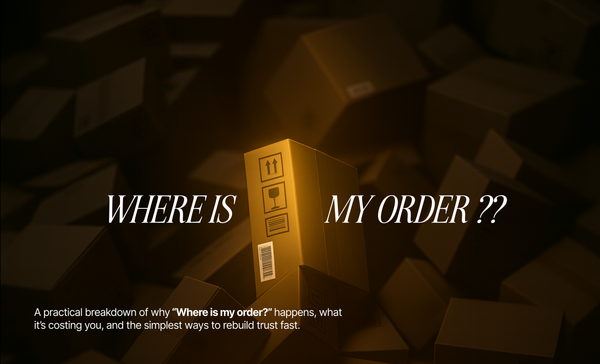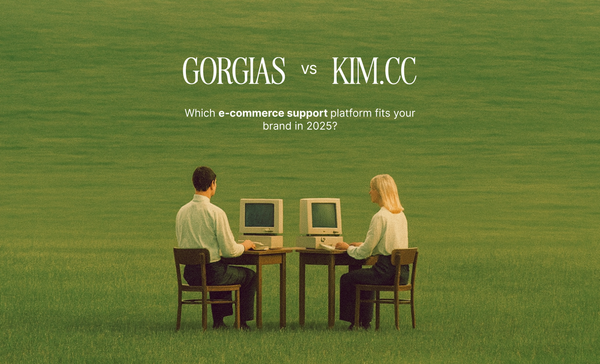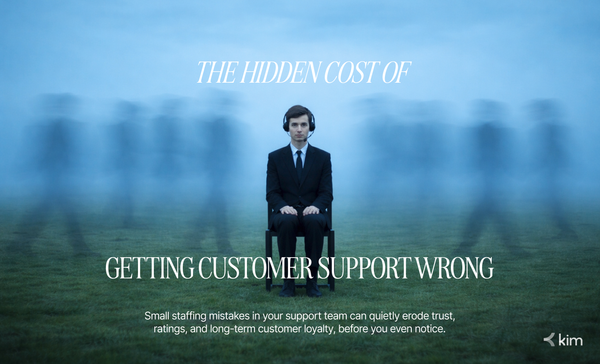Customer Care Outsourcing: Why Modern Ecommerce & DTC Brands Are Choosing Remote Support
“People do not buy goods and services. They buy relations, stories, and magic.” — Seth Godin
If you’re building an ecommerce or DTC brand today, customer support isn’t a “nice-to-have.” It’s part of the product.
Customers expect fast replies, accurate answers, and human empathy—whether they’re asking about an order delay, a return, or which product suits them best. And they expect this 24/7.
That’s exactly why more growing brands are turning to customer care outsourcing through remote support teams. Not as a cost-cutting shortcut, but as a smarter, more scalable way to deliver the best customer service without burning out internal teams.
In this blog, we’ll break down the real, practical benefits of outsourcing remote customer support, and why it’s becoming the default model for modern ecommerce brands.
Table of Contents
- Why Customer Support Becomes a Bottleneck as You Scale
- What Is Customer Care Outsourcing?
- Key Benefits of Outsourcing Remote Customer Support
- How Outsourced Support Helps Deliver the Best Customer Service
- What to Look for When You Outsource Ecommerce Customer Service
- Final Thoughts: Is Customer Care Outsourcing Right for You?
Why Customer Support Becomes a Bottleneck as You Scale
In the early days, founders handle customer support themselves. Then comes a small in-house team. Then growth hits.
Suddenly:
- Order volumes increase
- Tickets pile up during sales
- Customers expect faster replies
- Support becomes a 24/7 requirement
Hiring locally takes time. Training takes longer. And expanding an in-house team for short-term spikes often doesn’t make financial sense.
This is where outsourcing remote customer support becomes less of an option, and more of a growth strategy.
What Is Customer Care Outsourcing?
Customer care outsourcing means partnering with a remote support provider that supplies trained customer support agents who work as an extension of your brand.
These agents can handle:
- Email and live chat
- Social and marketplace support
- Order tracking, returns, refunds
- Product and pre-purchase questions
They operate remotely, often across multiple time zones, and are trained on your tools, tone, and workflows, just like an in-house team.
Key Benefits of Outsourcing Remote Customer Support
1) 24/7 Coverage Without Operational Burnout
Customers don’t shop on a schedule. They browse, buy, and raise issues at all hours.
With remote customer care outsourcing, you can:
- Offer true 24/7 support
- Cover weekends and holidays
- Avoid night shifts for internal teams
Instead of stretching your existing staff thin, outsourced remote agents ensure customers always get timely responses, no matter the time zone.
2) Lower Costs Without Sacrificing Quality
Hiring full-time support agents in the US is expensive. Between salaries, benefits, tools, and overhead, costs add up quickly.
When you outsource ecommerce customer service:
- You save on infrastructure and HR costs
- You pay only for productive hours
- You gain access to experienced agents at a lower cost
Importantly, cost efficiency doesn’t mean lower quality. Many remote agents specialize in ecommerce platforms like Shopify, Gorgias, Zendesk, and Help Scout, and deliver consistently high CSAT scores.
3) Scalability During Sales and Peak Seasons
One of the biggest advantages of customer care outsourcing is flexibility.
During launches, Black Friday, or holiday sales, support volume can double or triple overnight. Remote teams can be:
- Scaled up before peak demand
- Reduced once volumes normalize
- Adjusted without long hiring cycles
As brands like Brooklinen scaled, customer inquiries surged during major sales and holiday periods. By onboarding trained remote agents ahead of peak demand, they were able to manage higher chat and email volumes across time zones while maintaining fast response times and consistent brand voice, without building a massive in-house team.
4) Access to Global, Ecommerce-Ready Talent
Remote outsourcing removes geographical limits.
You can hire agents who:
- Understand ecommerce workflows
- Have experience with returns, logistics, and subscriptions
- Speak multiple languages for global customers
This access to global talent helps brands expand internationally while still delivering localized, high-quality support.
5) AI + Human Support That Actually Works
The future of customer support isn’t AI or humans—it’s both.
Many outsourced support models now combine:
- An AI virtual assistant for FAQs, order status, and simple queries
- Human agents for complex, emotional, or high-value conversations
This hybrid approach reduces ticket volume, speeds up resolution times, and ensures customers still feel heard. AI handles speed; humans handle trust.
When implemented correctly, AI-enhanced outsourcing helps brands deliver the best customer service at scale.
6) Faster Response Times = Better Customer Experience
Speed matters.
According to Salesforce, 88% of customers say the experience a company provides is as important as its products. Slow responses directly hurt conversions and repeat purchases.
With outsourced remote support:
- First response times drop
- Resolution times improve
- Repeat contacts decrease
Faster replies lead to happier customers—and happier customers come back.
How Outsourced Support Helps Deliver the Best Customer Service
The fear many founders have is simple:
“Will outsourced agents sound like us?”
The answer depends on training and systems.
High-performing customer care outsourcing partners:
- Use detailed brand playbooks
- Train agents on tone and values
- Monitor conversations for quality
- Continuously optimize workflows
With the right setup, customers can’t tell the difference between in-house and outsourced support—except in how fast and effective the service feels.
What to Look for When You Outsource Ecommerce Customer Service
Before you outsource ecommerce customer service, it’s important to know what makes a great support agent — especially when they’re remote. Beyond technical training and ticket tools, the skills they bring directly impact quality and customer satisfaction.
When evaluating a remote partner or support team, look for agents with:
- Strong empathy and problem-solving ability
- Speed with accuracy in responses
- Clear communication and active listening
- Attention to detail and adaptability
- Familiarity with ecommerce workflows
These are among the core skills top brands look for when hiring support — and you can dive deeper into each one in this helpful guide on the top 8 customer support skills to look for before you hire: https://blog.kim.cc/blog/top-8-customer-support-skills-to-look-for-before-you-hire/
As you assess partners, ask how they train, measure, and reinforce these skills within their remote agents. A team with this foundation will not only resolve issues faster but help elevate your brand’s reputation.
Final Thoughts: Is Customer Care Outsourcing Right for You?
If your brand is growing, customer expectations are rising, and support is becoming harder to manage internally, customer care outsourcing isn’t a shortcut—it’s a strategic advantage.
It allows you to:
- Scale without stress
- Control costs
- Deliver fast, human support
- Combine AI efficiency with human empathy
The real question isn’t whether to outsource—it’s when.
Are you looking for a way to offer 24/7 ecommerce support without hiring a full in-house team?
👉 Explore a 14-day trial or book a demo to see how AI + human remote support can work for your brand.



